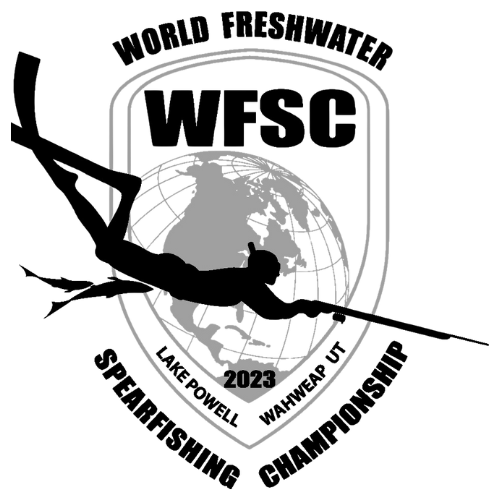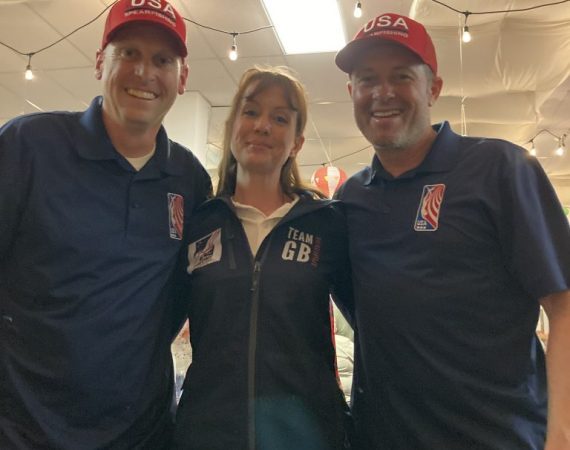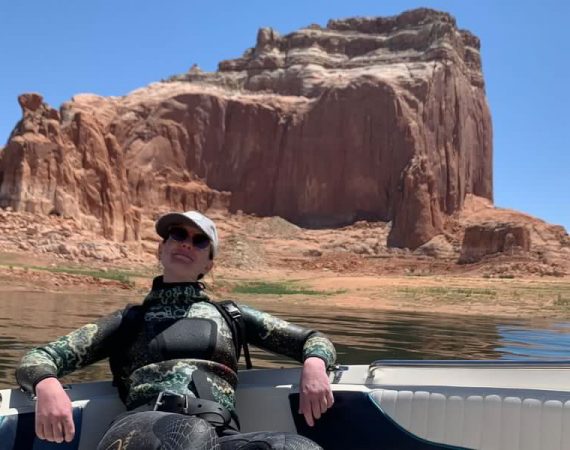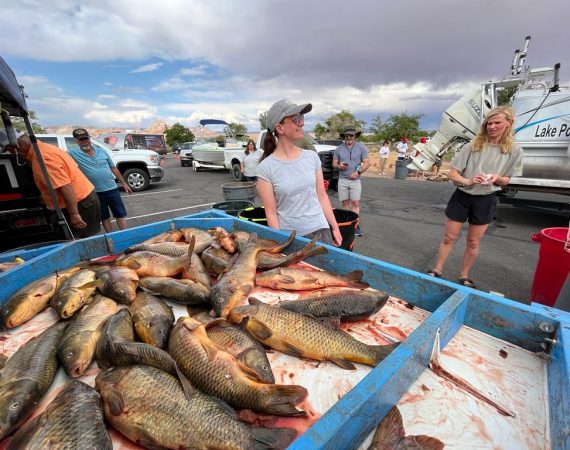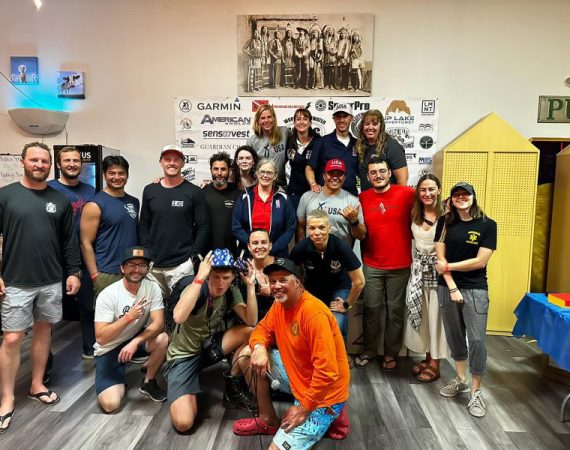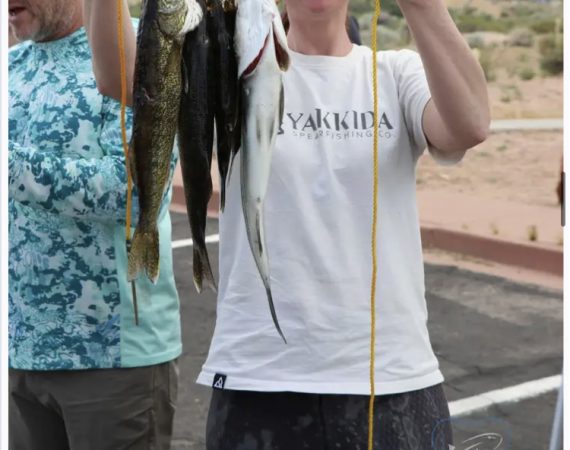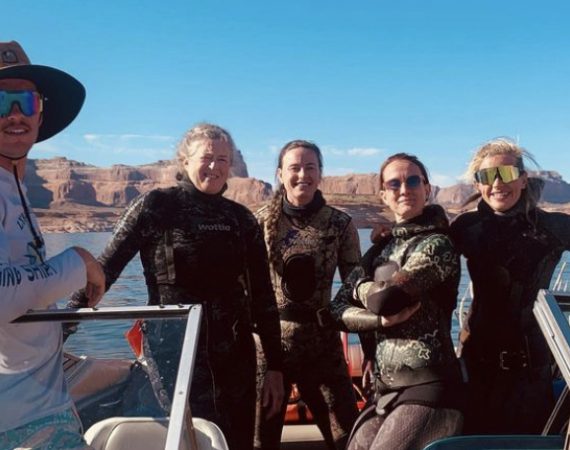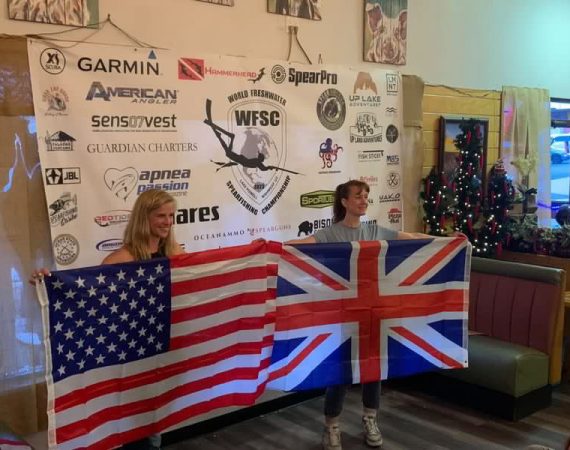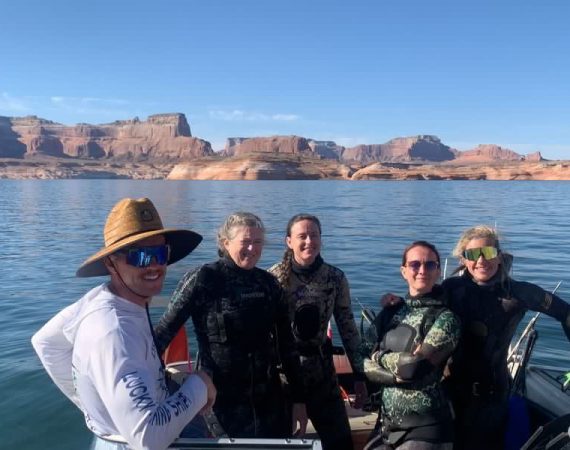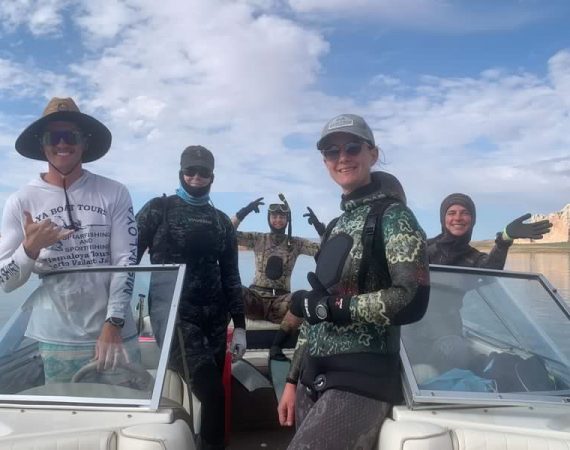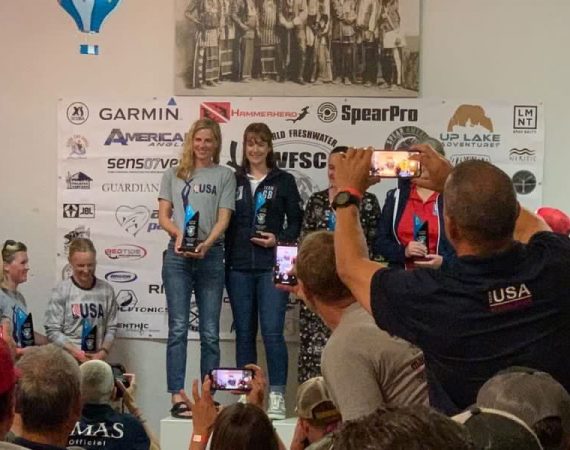I’ve been rod and line fishing since I was able to walk and talk, both in the sea and fresh water. Fishing for me was more than a hobby, it becomes almost an obsession. But a good one.
I naturally progressed to spearfishing after moving to southwest England where the water is warmer, with more fish and more importantly – clearer visibility.
My husband and I had never tried spearfishing, but we had heard of people at university who did and it sounded great, a big step up from sitting with a fishing rod on a crowded pier. Ever since my first dive with a speargun I was hooked. We were self-taught and basically learnt the longer and harder way on what to do and what not to do but I knew I was going to stick with it.
Over the years as we progressed, and I got better at diving and hitting fish, I joined a local spearfishing club and made some local contacts who told me about a national comp coming up.
I didn’t feel remotely competition ready but as a few friends assured me they were going and it would be fun, I thought I’d give it a go.
I remember being so nervous before my first competition I didn’t sleep the whole week before and the anxiety was awful. What if I didn’t catch anything? People reassured me that it’s ok. I’d be the only woman competing so it’s easier for me!
I thought – what a no-win situation. If I win, I’ve only beaten myself. If I lose, by blanking – I’ve lost against zero competitors. I will look like an idiot either way!
As it happened, on the day everyone was super nice and friendly. Sure, they stared but some made the effort to come talk to me and just say hey.
I did blank, I caught zero fish. Competitions in the UK have strict size limits which are set over the legal minimum size for each species to make it more…sporting? I was so annoyed at myself, I’d have loved to just weigh one fish. But anyone who spearfishes knows, that’s the way it goes sometimes.
The next competition after that one was easy. I’d survived the thought of blanking (and losing against myself) and therefore had nothing left to worry about. I weighed fish at this one, and I learned to be more relaxed and take it easy. To remember to have fun and above all else, a days diving in the water with the fish is never a wasted day. There was also, another female diver this time and I wasn’t alone.
When I saw the Euro Freshwater Championship advertised, I thought sounded different and I put myself forward for it. I prepared as much as I could, and I thought all the years of freshwater fishing I had learned I might be able to use for freshwater spearfishing? And sure, knowing what fish exist where, what they eat, how the features of the lake can be used to find them, it all helped. But at the end of the day, Freshwater Spearfishing is it’s own type of fishing.
It takes some components from saltwater spearfishing but it’s a different set of tactics and approach. For example, anyone who rod and line fishes knows that you don’t need to be as quiet sea fishing, the sea is loud and fish are distracted. But rod and line fishing in freshwater? Different game. The fish hear your footsteps on the riverbank. They hear the disturbances in the water, and they spook when they see a shadow. And they don’t come back. So, imagine being in the water and trying to catch them!
The first thing I noticed in my first freshwater dive was how quiet it was. No noise, no rush of the waves, no crackling of kelp and shingle on the sand. It was totally silent and almost eerie.
And if you are used to blue water fishing and deep dives, you can forget that here – jungle warfare was the method of fishing on the day. Stalking bamboo like reeds that jammed into your wetsuit or gun riggings and a floatline that would wind, drag and crash through the reeds behind you. The method of stalk the reeds and then retrieve your float, rinse and repeat, was best way to reduce noise and movement. Even when you saw a fish, you had so little time or chance to hit it because the reeds got in the way of your gun tracking the fish. We found some fish but it was a steep learning curve and without local knowledge it was always going to be tough.
After all this, I had to admit the feeling of diving in fresh water instead of salt water all the time was a nice change. And it was nice to see and hunt something different in a totally different environment. So naturally when I was told that the World Freshwater Championships was being held in Utah, and was going to be even bigger, with more fish, I was game for the next adventure!
Nothing prepared me for Lake Powell. Its size, its beauty, how fantastic and welcoming the people and local spearfishing community were…. Incredible. You can’t possibly scout a lake this size. You can try, and it’s important to learn what the species look like and behaves like – but in my experience the fish are never there on the day. The fish know when its comp day, even the Carp who were everywhere on comp day 1, knew when it was comp day 2, to make themselves scarce.
The fish here (like everything in America) are so much bigger. I wish I had more time to fish but the practice zone for shooting fish was a long trek and we didn’t have time. Id have loved to catch a trophy sized fish – next time!
In terms of strategy, it depends on your style of spearfishing. Striped Bass were one of the main targets, so I tried doing some deeper dives down the walls and ledges and waiting for the fish, but I didn’t see many. Striped Bass occur in both fresh water and saltwater in America but like all fish species that do this, the fresh water ones reach smaller max sizes. They did however behave more like pelagic fish, shoaling and moving constantly for food, which differed from the other species. I was told, dive to the thermocline and this is where they will be. But the visibility had dropped with each day as the water levels still rising from the snowmelt and a spooky green glow with limited light in the murky water. I dived to 10m or so and lay on a ledge (we had moved to shallower bays) and I couldn’t see the fish. My teammates reported seeing them so why couldn’t I?
After a recap on the surface, it turns out I was supposed to stop at the thermocline and that’s where the fish would come in. This for me was new, I don’t have blue water experience and I’m used to just diving down and stopping on the bottom to wait for fish. The idea of going halfway and sitting in the water column suspended, waiting for them to approach, was just hard for me to convert to.
At the end, what worked for me, was practicing the super stealth method and choosing the spots that suited this style of hunting. Not diving too deep but picking spots that looked the right depth and that looked fishy. I was given the advice if the fish aren’t there or don’t come in 45seconds or so – move on. I tried to stick to this as much as possible because you can waste a lot of time on a dead spot. Oh and the walleye, where almost always behind me. I must give myself away from the front!
Final result was way beyond my expectations. The amazing NFSA found me a buddy to team with as my team had been unable to travel and what a superstar Anna turned out to be! She might have been very new to spearfishing but her positive “get stuck in” attitude more than made up for it and she’s going to be one to watch in the nationals for sure.
Thanks to her and our Boat Captain, our Team won the women’s division for Team’s and we couldn’t have been more pleased. I placed 3rd individually in the end and Anna placed 5th, safe to say she smashed her first comp. Thank you everyone for a truly unforgettable experience and I’m so proud to be part of the international freshwater spearfishing community.
